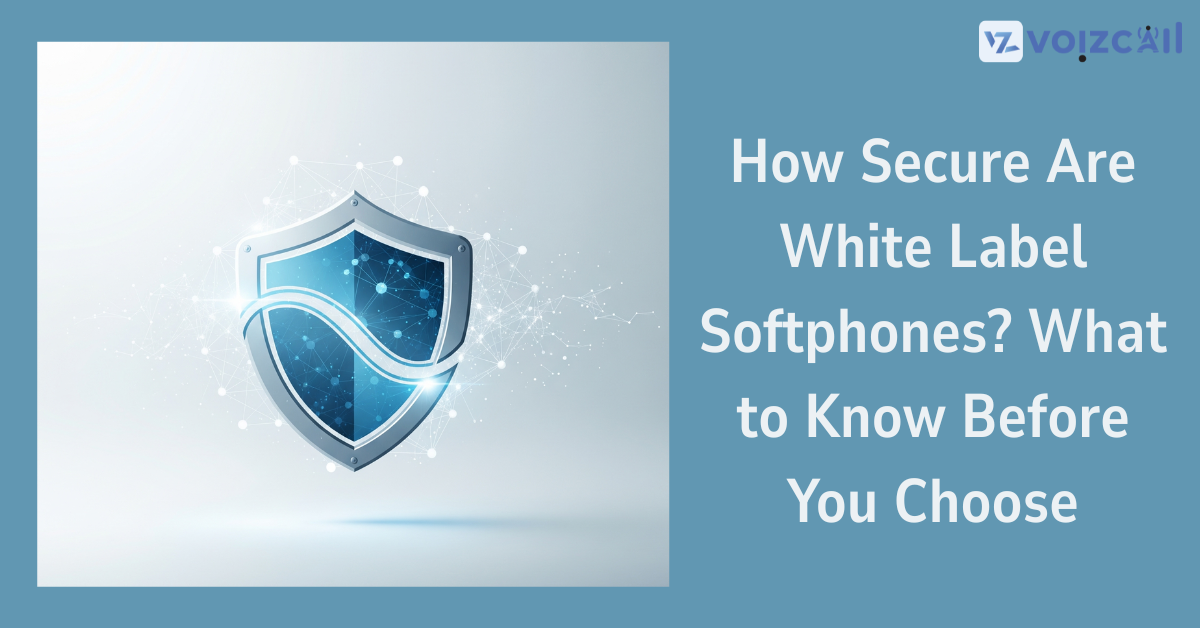


10/Aug/2025
In the current interconnected world, white label softphones offer companies a chance to offer a branded means of communication without them having to reconstruct everything. They are affordable, easily-customized and ideal for providing VoIP services in your own brand.
The big question though is how secure are white label softphones? Security is more than a luxury, it is what makes a difference between securing your business and exposing your customers to danger.
As you get ready to introduce or select a white label VoIP softphone solution, this guide will ensure you know the important security and safety elements to consider regardless of being ready to make the commitment.
White label softphone is a VoIP (Voice over Internet Protocol) software that enables you to call, text and even conduct video conferences-all in the name of your company. A provider creates the core technology, however, with elements like the design, features and user interface you are able to customize to your needs of your brand.
VoIP service providers and telecom startups as well as IT companies prefer them since they cut down development time and cost. However, their primary concern is security because they process confidential communication data.
The Reason the Security of White Label Softphones Is Vital
Sensitive Data Protection - All the calls, messages and files shared are passed through your softphone. Hackers can intercept it in case it is not encrypted.
Brand Reputation- Trust towards your brand will be broken in one breach.
Regulatory Compliance GDPR and HIPAA are laws that present the need to have secure means of communication, notably in fields such as healthcare and financial industries.
Important Security Features to Target in 2025
Call / Email for Sales Inquiry Today
1. End to End Encryption (E2EE)
Each conversation should only be accessible by the sender and receiver making sure your white label softphone has an end-to-end encryption.
2. Authenticated and Secure Sign-On
The same can be done by verifying the presence of security options such as the use of two-factor authentication (2FA), Single Sign-On (SSO) and biometric authentication (login).
3. TLS Protocols SRTP
Audio and video streams are encrypted using Secure RTP (SRTP), whereas Transport Layer Security (TLS) protects data in the transmission. Both of them make a strong combination providing secure VoIP communication.
4. Frequent Security Patches
Better to go with a provider who regularly releases security patches and software updates to resolve vulnerability prior to it being exploited.
5. RBAC
RBAC makes sensors accessible only to authorized team members hence limiting chances of data leakage within an organization.
Some of the questions that you ought to ask before selecting a white label soft phone include:
Does it enable authentication of all types of communication by end to end encryption?
When does the security update appear?
Which authentication techniques are possible?
Is there firewall and protection against DDoS?
Is it able to meet industry specific regulations such as HIPAA and PCI DSS?
Final Thoughts
White label softphones serve as a perfect method of providing branded communication tools in a short time and low cost. However, lacking appropriate security features, they may turn out to be a vulnerability of your business.
Consider encryption standards, authentication options, and their compliance readiness before you decide which one to choose. In 2025 you can no longer forego safe communication, that has to be made your competitive edge.
To achieve peace of mind, make sure to choose a white label VoIP softphone provider that values data privacy, and encryption, in addition to performing a frequent data security audit.